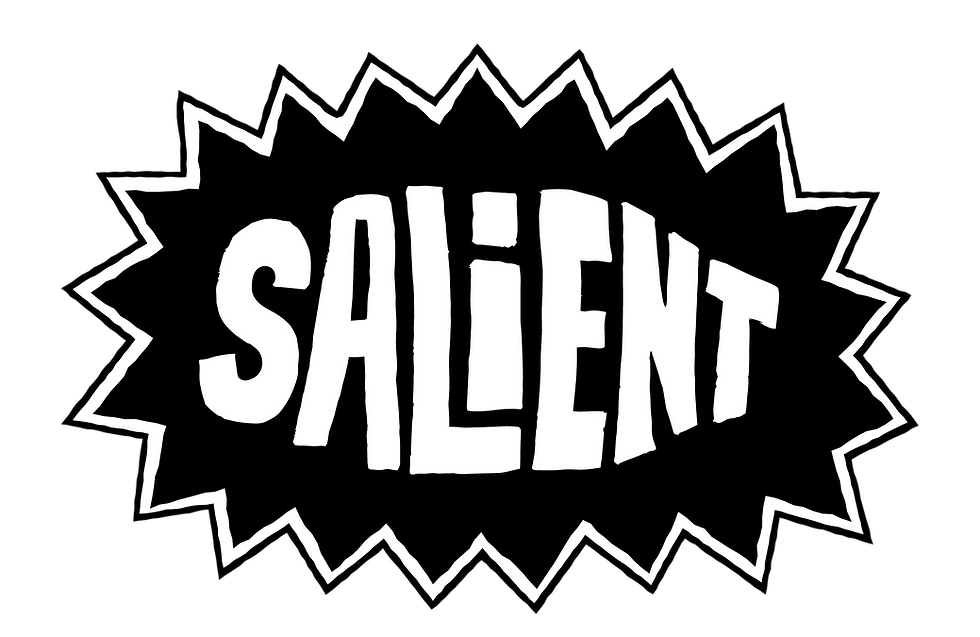Music Festivals Need a Feminist Rethinking
- Salient Magazine

- Sep 9, 2024
- 4 min read
Words by: Niamh Prendergast (she/her)
NZ run and hosted music festivals, and university O-Weeks, are dominated by male artists in their lineups and their headliners. Women are significantly underrepresented. Women of colour are even worse off. Naturally, all aspects of diversity are important and not just gender. The intent of analysing gender in lineups is not to singly advocate on that basis but to clearly identify one concerning trend that might encourage conscious diversity commitments from promoters. If unbalanced gender in lineups is a trend, it’s likely other aspects of diversity are missing the mark as well.

This year’s VUWSA O-Week had an appalling lack of diversity. In terms of gender, the week had a ratio of approximately five and a half men for every one woman artist. Of the top eight billed music artists, none were women. This puts our O-Week within a wider trend of festivals where gender diversity is consistently absent, reflecting wider issues of lacking diversity. Otago University’s O-Week had three headliners; none were women. Rhythm and Vines, a three day festival, had only one woman artist in its top 10 billed acts. Le Currents had no women headliners, and its first billed woman artist was a member of a group listed 23rd on the billing. Electric Avenue’s first named woman artist was 11th billed, again with all male headliners. Homegrown, Bay Dreams, and Nest Fest were each diverse in ethnic and/or LGBTQ+ representation but all fell far short of gender balance, reflecting the need for more holistic lineup selection processes.
I don’t point this out with the intention to dog on anyone’s summer festy plans or be overly critical of O-Week, which I know many people have fond memories of. On the contrary, those events are fun! We need to be ok acknowledging that while we enjoy them year on year, festivals and O-Weeks get away with consistently prioritising white men. And it isn’t our fault. We have so few options; most festivals follow this trend, and many sell out tickets before even announcing their lineups. However, we can imagine if they were even better. We can also ask for better.
Let’s turn to an example that might draw some optimism into this conversation. Following criticism for its overly white lineup one year, Laneway Festival announced a more diverse lineup the following, with Stormzy, Steve Lacy, and Dominic Fike headlining. There’s two takeaways from this.
One: While the 2023 lineup was more diverse and the improvement welcome, Laneway still only managed to have one woman in its top 10 billed acts. Commitments to diversity need to be holistic and intersectional.
Two: This is a large international festival. That its organisers listened to audiences shows us imagining better, and asking for it, isn’t beyond us. This is particularly the case for University O-Weeks, who are far from the exception when it comes to the trends. VUWSA openly acknowledged the issue of diversity, and said while committed to having a “lineup that reflects society”, they struggle with this since the music and comedy spaces themselves are not diverse. Here’s a statement VUWSA provided:
“The VUWSA O-Week lineup is put together via our promoter. This music lineup is determined by a lot of external factors we don't have control over – generally VUWSA's personal input is solely limited to the acts we won't take… We recognise and understand that diversity in the professional music and comedy space is a problem, and that our lineup was not as good as it could have been this year in that regard. We remain committed to having a lineup that reflects society and every year this is one of our priorities when talking about acts.”
While it may be true that white male artists saturate the music and comedy industries in Aotearoa, and promoters may work with those artists more, the lack of diversity really doesn’t need to be the case. At this year’s Welcome to Nowhere festival, women and non binary artists outnumbered male artists. That isn’t by chance; the festival is run by Eyegum Collective, who are conscious of diversity and supporting local artists. It appears that when promoters and organisers integrate diversity into their planning, that is reflected in their lineups.
Supporting artists is one reason that diversity is important, but not the only one. What is portrayed on stage often reflects and informs the culture of a festival or O-Week. To their credit, this is one aspect VUWSA are leading in. The organisers of O-Week are conscious that a large-scale event with an abundance of alcohol, drugs, and hormones can be unsafe at times. They explained that to mitigate issues, VUWSA has significant measures in place to support attendees, including a safe room (one of the only student associations to offer this) with medical support, food, water, chargers, and often an offer to be dropped off at student accommodation if someone needs to get home safely. They explain: “Instead of dangerously intoxicated people being sent out of the venue onto the street to fend for themselves, we take them in and look after them.” Alongside onsite measures, VUWSA collaborates with the Wellington City Council on a city-wide safety campaign during O-Week, particularly around sexual violence prevention.
This commitment to safety measures shows that while O-Weeks and festivals are fun spaces, they are not immune from serious conversations when it comes to planning. If O-Week and festival organisers are willing to take planning seriously, which they should be, then they might like to include some tangible considerations of diversity.




Comments